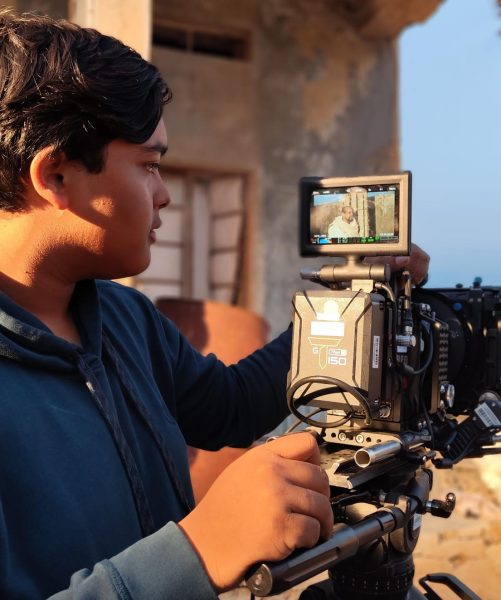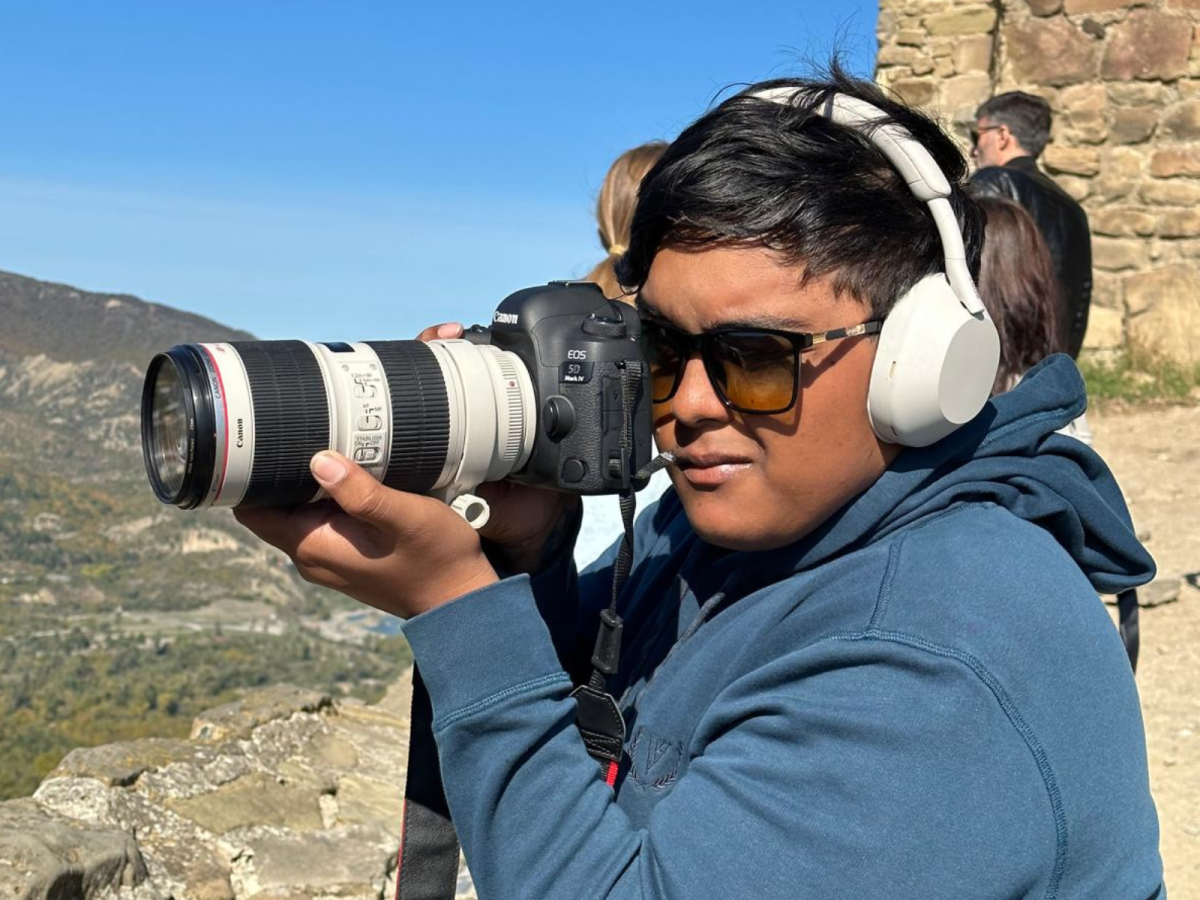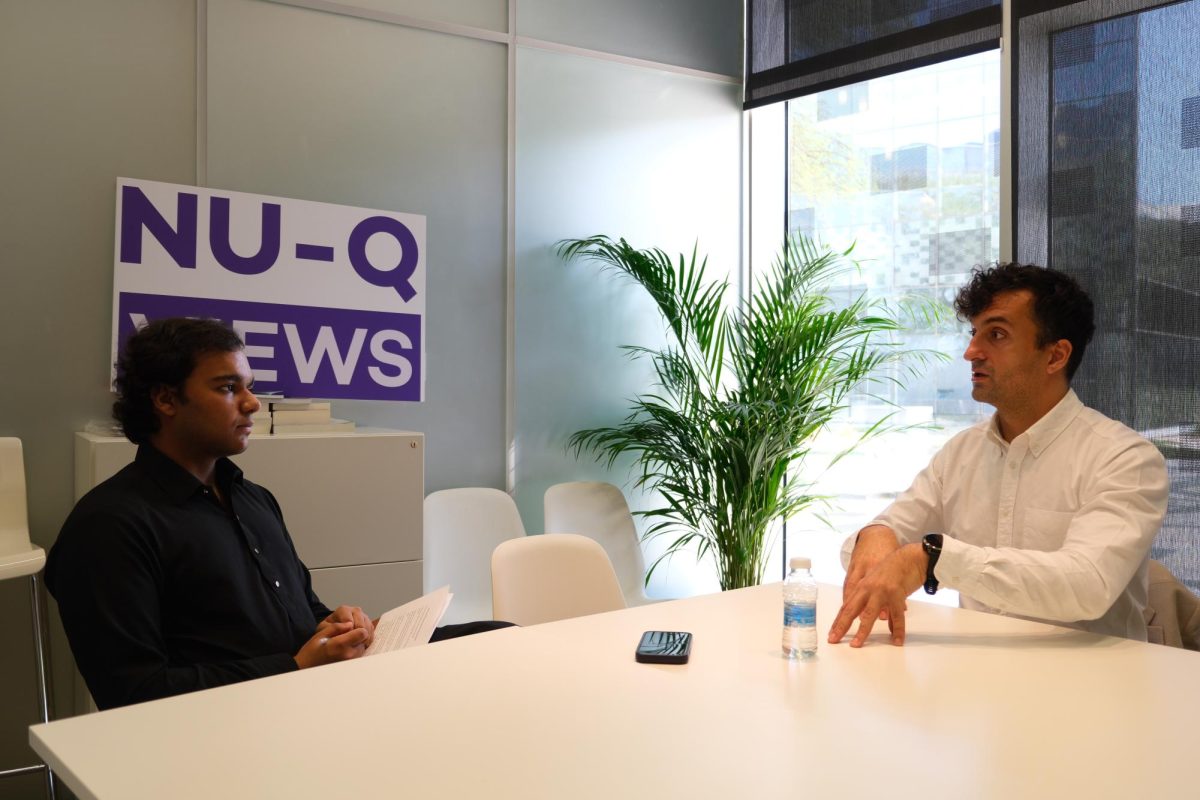The bright lights of the Cannes Film Festival shimmered around Mehul Bhattacharya as he stood amidst acclaimed filmmakers, while his heart raced in a mix of awe and disbelief. Still a teenager, he stood among industry giants, captivated by the magic of this prestigious event.
“Being at Cannes as a 19-year-old filmmaker, I was way younger than most of the other people there,” he recalled. “I was able to learn so much about the industry just by being there, seeing all these famous filmmakers, and hearing them talk about their processes. It was truly a life-changing experience.”
This milestone affirmed that everything he had worked toward was finally within reach.However, the path that led Bhattacharya to this moment was not one of certainty or predestined ambition. Growing up in West Bengal, India, he never considered filmmaking a career option until he unexpectedly founded a high school film festival, sparking a newfound passion for visual storytelling. “On a personal level, I always liked watching films, but it wasn’t something I thought I’d ever be involved in,” he explained.
Bhattacharya’s definitive awakening came during his time at Northwestern University in Qatar (NU-Q). Initially enrolling to study journalism, his experience with filmmaking quickly shifted his focus. A mandatory media production course, MIT 190-0 Media Construction, opened his eyes to the technical aspects of filmmaking.
“MIT 190 was the turning point,” he said. “It was there that I discovered a real fascination with the technical side of filmmaking, like lighting and camera operation.”
Bhattacharya found encouragement for creative exploration. With access to state-of-the-art equipment and a highly supportive production team, he experimented with all aspects of filmmaking, from editing and sound design to cinematography and directing. In the end, cinematography captured his heart.
“I really have a knack for cameras and lighting,” he said.
His passion for creating visually compelling stories has since defined much of his work.
Influenced by filmmakers such as Stanley Kubrick, Christopher Nolan, and Martin Scorsese, Bhattacharya also draws inspiration from Wong Kar Wai and Abbas Kiarostami.
“I really like Wong Kar Wai’s work, especially with the canted framing and the shocking lights. I really admire Kiarostami for his emotionally intriguing narratives,” he shared. While he admires these masters, Bhattacharya’s filmmaking approach is often spontaneous. “Most of my work is very impromptu, and I tend to modify a lot in the production process itself,” he said.
Bhattacharya’s first-year film, Red Dot, became an early testament to his emerging talents, screening at over 15 festivals across 11 countries. The film earned awards for best sound design, best editing, and best script.
At festivals like the Tbilisi Sunrise Film Festival in Georgia, where it was Qatar’s official entry, and the Buddha International Film Festival in India, the film was a hit.

The recognition reached its peak when a film he and his classmates developed for a lighting and cinematography class was selected for Cannes in 2024. “It was surreal,” he said. “Being at Cannes was just this moment where I felt like everything was possible.”
Bhattacharya’s love for the collaborative nature of filmmaking has played a significant role in his success. “The ability to create worlds from scratch and the bond that we form on a set is what I love most about directing,” he said.
This collaborative spirit fueled one of his impromptu projects, a film made for NU-Q’s Not Another Film Club short film competition. Shot in the desert after sunset, the film was entirely improvised. “We wanted to create something that was mind-boggling, which kind of confused the audience. It was fun,” he added.
Bhattacharya’s journey took another transformative turn when he traveled through Europe, attending film festivals and masterclasses by renowned professionals. It was his first time in Europe, and the experience felt like stepping into another world.
“Being from a less privileged background, it felt like I was getting a glimpse of a life I never thought was possible,” he said. The knowledge he gained in these settings has become integral to his filmmaking process.
But his creative journey is not only about technical expertise and collaboration. His latest project—a documentary-style film on the Armenian community in Kolkata—reflects a deeper, more personal ambition: to explore the concept of home. Bhattacharya is the lead character in the film, which follows his return to Kolkata after several years away. As he sets out to make a documentary on the Armenians living in the city, Bhattacharya unravels his feelings of nostalgia, belonging, and identity.
“I realized that home is intrinsically linked to comfort and nostalgia,” he said. Through this experience, he discovered that home is not just a place, but a feeling that transcends physical boundaries.
Bhattacharya has had a formative experience working on the film, which was funded by the Institute for Advanced Study in the Global South at Northwestern University in Qatar (#IAS_NUQ) through an undergraduate fellowship. It marks his first time working with a substantial budget, and he relishes the chance to experiment with a more abstract, documentary-fictional approach to filmmaking.
Traveling across Kolkata and the West Bengal state with a 20-person crew, Bhattacharya captured a diverse range of shots that reflect both the city’s rich history and the complex emotions tied to the concept of home. “It was my first documentary project, and it was refreshing,” he said. “I got to work with people from outside of NU-Q, and it was exciting to see their different cinematic visions.”

Bhattacharya’s experience producing this film has given him a clearer sense of his direction in the industry. “I’ve learned that I’m most comfortable when I have a clear vision for how the film will look on screen,” he said.
Both in terms of cinematography and direction, Bhattacharya has found a space where his creativity can truly flourish. With a passion for directing and a natural talent for cinematography, Bhattacharya sees a future where these two disciplines intertwine.
Looking ahead, Bhattacharya is eager to continue making films that resonate deeply with audiences. He has already set his sights on exploring political cinema, focusing on issues such as communal divides and the controversial Armed Forces Special Powers Act (AFSPA) in India. “I want to make films that matter, that touch on real-world issues,” he added.
Along the way, he aims to delve into various genres, including docufiction, mockumentaries, surrealism, and experimental films, as he works on building a compelling and diverse portfolio that promises to establish him as a remarkable artist and a rising talent in the industry.








Sumona Bagchi • Jan 6, 2025 at 6:29 pm
Keep your vision unadulterated with other influences. Sky is no limit.